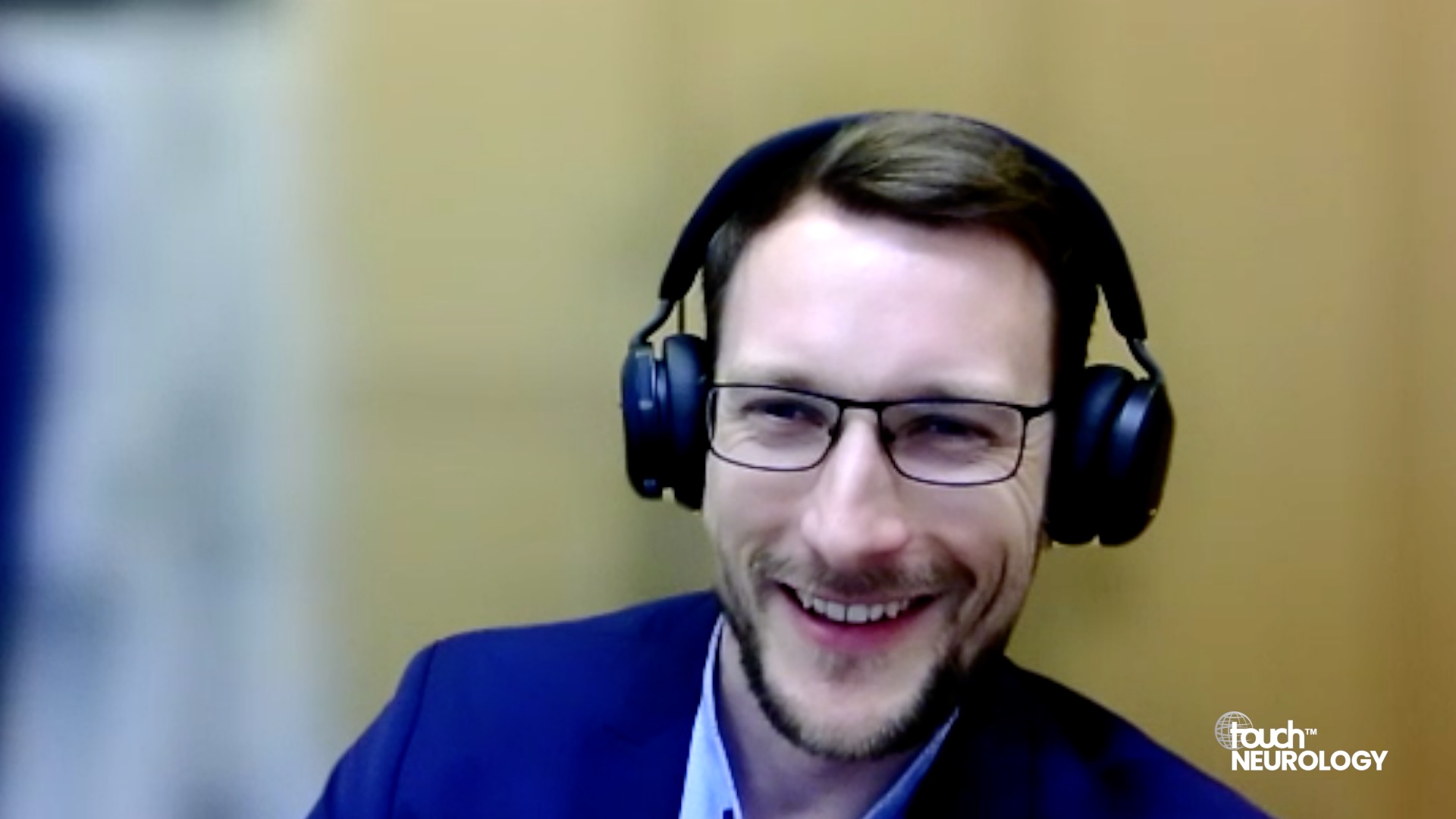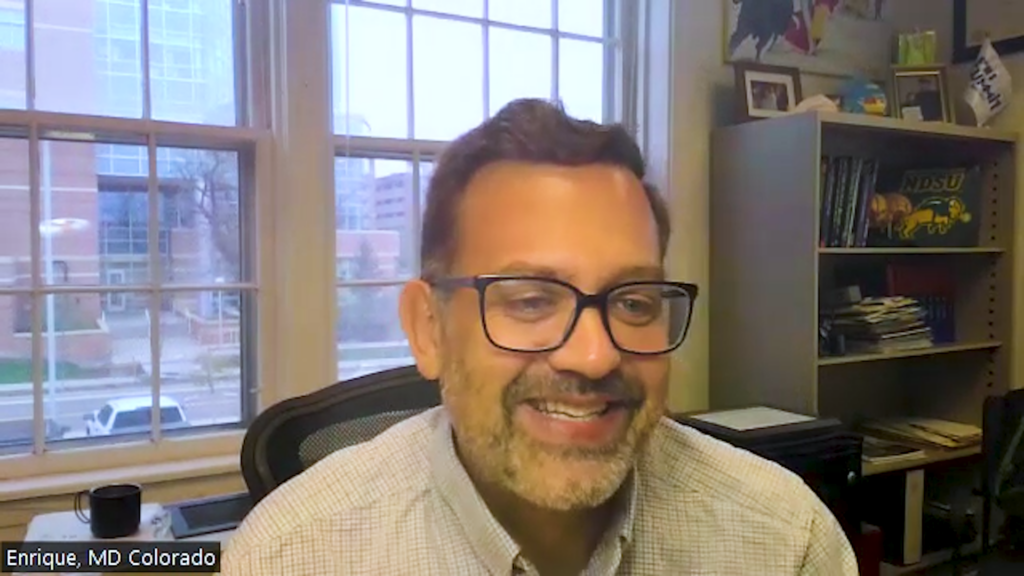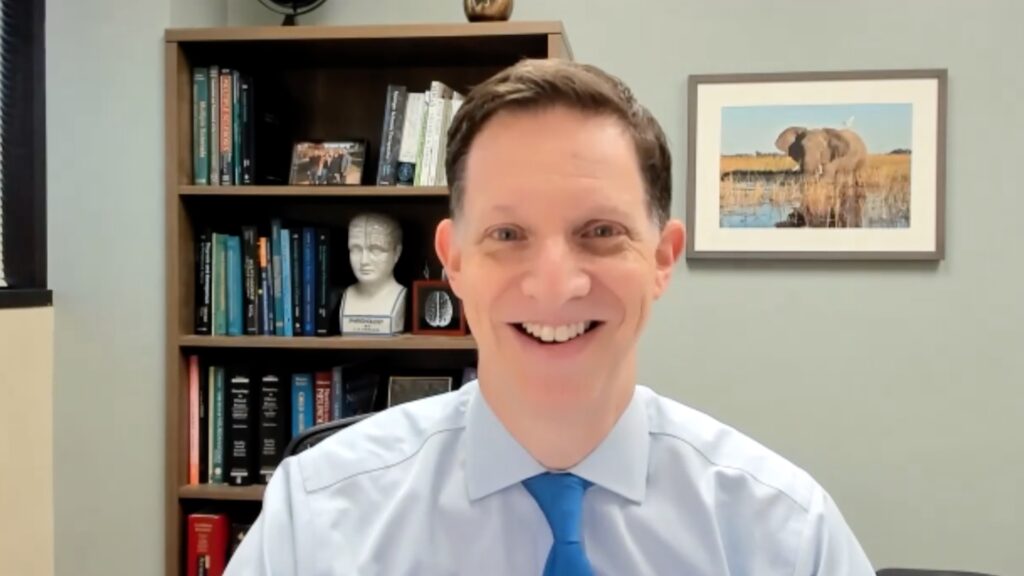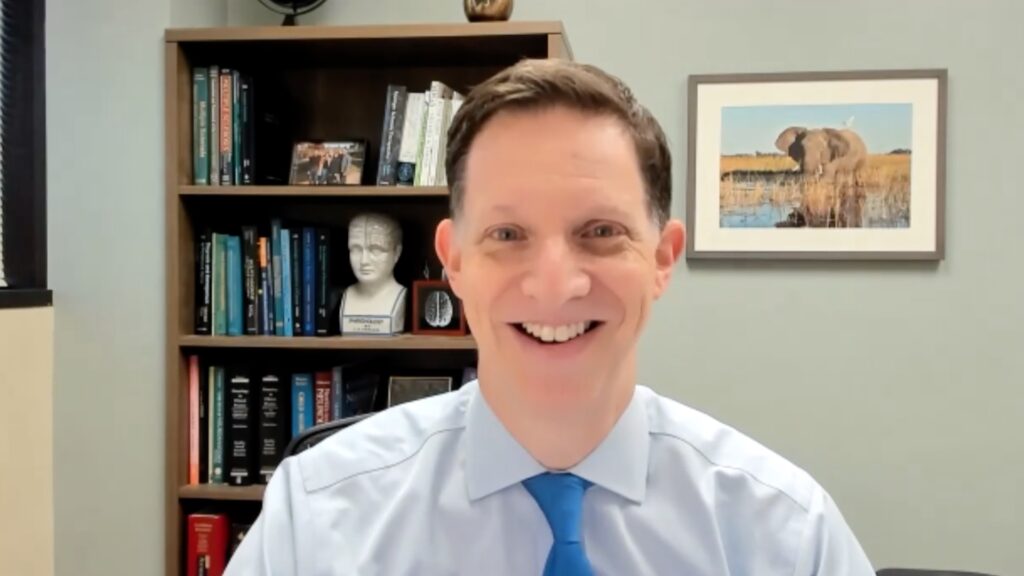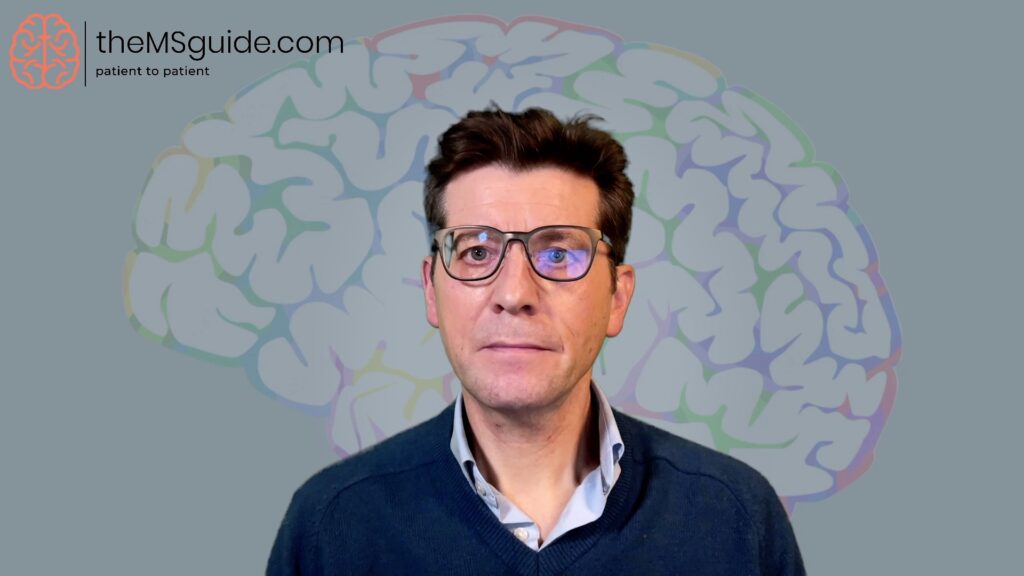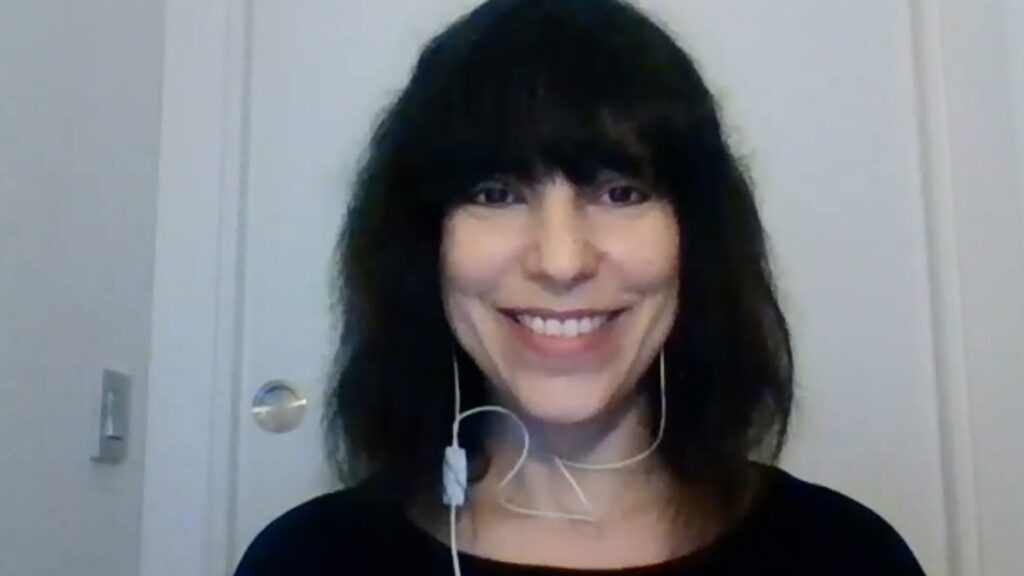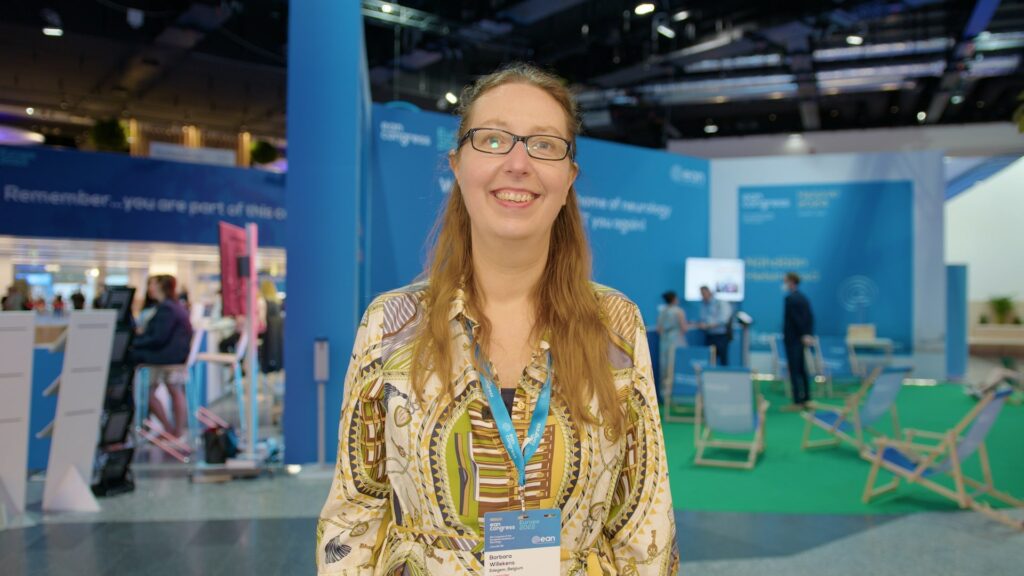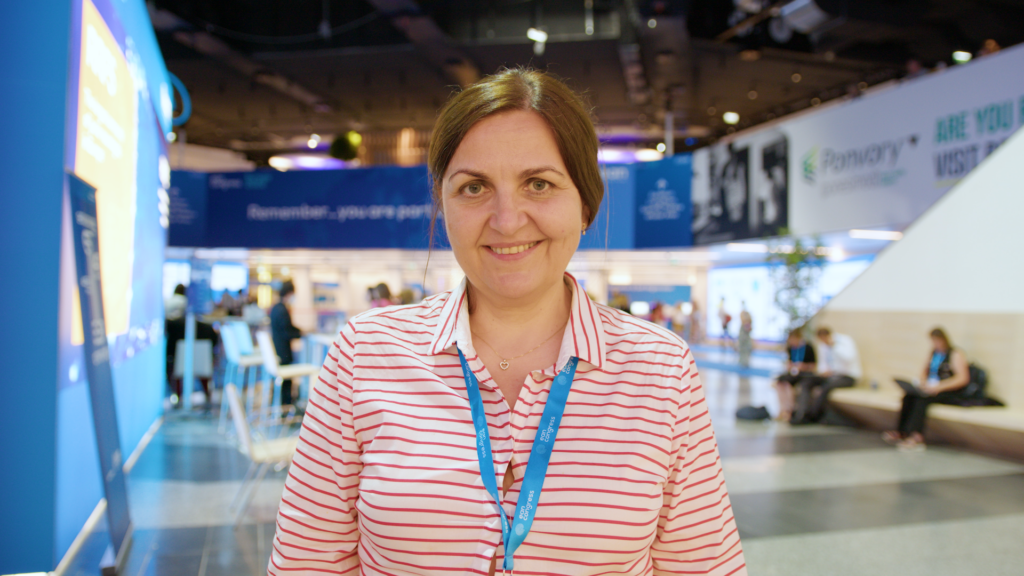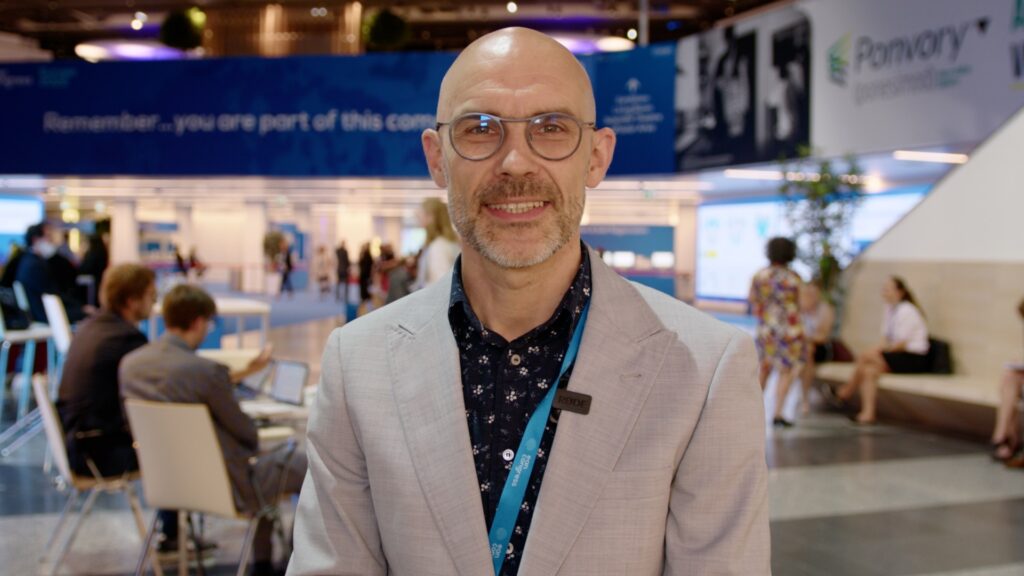Ms Nele Handwerker is living with multiple sclerosis (MS), and is a patient advocate. She joins us for World Brain day and shares the story of her MS diagnosis. Nele discusses strategies and resources that she believes could help improve quality of life for those living with MS.
Touch Medical Media is sharing educational resources on World Brain Day (22 July 2022) to help achieve brain health for all.
Questions and transcript:
1. What was your journey to your diagnosis of MS?
Answer: Yes the Summer 2003, it was quite a hot summer. Nowadays we have very often these hot Summers. But by then I was going to from just in my hometown to Dusseldorf, which is like six hour drive. And before that I had a blurred vision and my contrast was a bit lower. So I asked the optician, which was a neighbour of my parents by then, and she told me, oh, you know, if it doesn’t hurt, it’s as it is, no issue at all. So I was starting, but it became worse and I went directly to the university, the hospital. They checked everything and they told me I have to stay in the hospital. I got cortisone for one week and after one week, everything was fine and they did some more checks. But I didn’t realize what this is, the clinical isolated syndrome. I had to go to neurologist since then and one year later unfortunately there had been new spots on the MRI. I had no new relapse, but new spots, and I got the diagnosis m.s., which was quite ugly because I thought, hey, I’m a young and healthy lady. And I went to parties. I studied and I thought of horrible what’s happening now. But yeah, I got over that stage after a few weeks. And since then living my life with MS.
2. How does MS and any treatment impact your daily life?
Answer: Luckily I don’t have such an awful impact. I have a medication, which I have to cool, so I take injections and I have to, yeah, take care of the cooling. I was doing quite a lot of business trips in the past to Asia. And I was hiding the fact that I had MS because I wanted to do a career. And having MS and being a woman was kind of an issue in the business where I was working. So the hiding part was the heavy one and I get bruises from the injections. They are not so pretty. So I’m in summertime. I have to take I have to wear long closers or colourful leggings, but that’s fine. And I have to go or I decided to go to the doctor once per quarter to make all the checks and our logical examinations, cognitive and psychological tests every now and then an MRI. But I think it’s well invested the time, but of course it takes me some time. But besides that, luckily I don’t have that much impact. And since the diagnosis, I really try to live a healthy and happy life and do things now. And I think I wouldn’t have allowed me all that without the diagnosis. So having MS for me kind of changed things also into a good side so that I do things now and don’t wait until later on and sometimes later never happens.
3. What coping strategies and/or resources have been helpful to you?
Answer: For me, it was very important to learn about the disease. So at the beginning I was trying to check into what does it mean? Because I had really fears at the beginning and I thought, oh, I will be sitting in a wheelchair soon and maybe nobody will love me. And it doesn’t make sense to finalize my studies and find a good job. Yes, I decided it makes sense and knowing that the first five years tell you where it goes, where the future will be, was, was MS was, of course, relaxing after five years. And after seeing that it’s not that bad. It’s let’s say the tips, the advice is given by doctors changed during my course. So since the end of 2008, I’m taking medication because advice changed during that time. And I’m very lucky about the fact that I can do something by treatment, but also by my lifestyle. So I use yoga for stretching, having issues, maybe with some spasticity or something like that is something I don’t want to have. And yoga is good for relaxation. I try to do a lot of sports, so I use my bike, I do a lot of cognitive training. So I’m really a big fan of lifelong learning. And I do a no relation. It’s a platform where you can train directly your cognitive resources like memory or dual tasking or all these things. And then the platform kind of evaluates how you are and brings in more of the topics that you have issues with. So you need goals. So this goal doesn’t matter if it’s your family, your kids, things in job, or some hobbies, some interests. You need these goals in order to overcome the not so pretty things. Like, I don’t know, I mean, I had to do at the beginning seven times a week injections and I hated injections. But having in mind that I can have a good life, that I can travel to Australia, to the US, that I can have an interesting job, that I can find the love of my life. Also, it helped me to overcome these fears.
4. What else could be done to improve the quality of life for people living with MS?
Answer: So I think it’s really important to help people, especially after the diagnosis, to deal with their emotions. I get very often emails or chat messages from newly diagnosed people who are just full in fear and they are really afraid. They lose their lives, they lose their families. They can’t take care of their children. And sometimes they are not able to make decisions on their treatment or on, let’s say, healthy lifestyle decisions. And it’s really, really, really important to help them with their emotions, to help them balance. That is something I think clinicians can help as well. Neurologists normally, it helps them to find information from other patients who deal with it for quite a while, who are positive, who make the best out of their lives. But of course you have to really take care that they don’t give wrong suggestions. Then I think most people are able to follow you with treatment decisions. And of course, it’s important that the treatment decisions are matching their lives. So if they want to become a mom or a dad, all these things, and it’s important to talk softly and with some emotional approach and to have a partnership approach, not see. I’m the guardian white because a guardian white there might be some patients who once said still, but most of the people want to feel as a people on as a person on the same level because I’m the player on the field. But you as clinicians, you are the trainer. You know best what is good, what is newly coming out, what possibilities there are. But if you talk on the same level, I’m way more interested in following your advice. And of course, maybe there are two or three medications, there shouldn’t be too many, but you should give the advice which one would make sense and also about symptomatic therapy. But you should do it really on a Yeah. Same level approach, on the partnership approach, I think that is really, really important, especially with the younger generation. And we need. Yeah, some friendly advice and eye to eye contact. Thank you.
Disclosures: Nele Handwerker has nothing to disclose in relation to this video interview.
Support: The production of this video was supported by Touch Medical Media.
A variety of other educational resources covering dementia are available at touchneurology.com. Nele Handwerker also has a podcast for people living with MS (MS-Perspektive; available on Apple Podcasts, Google and Spotify).

